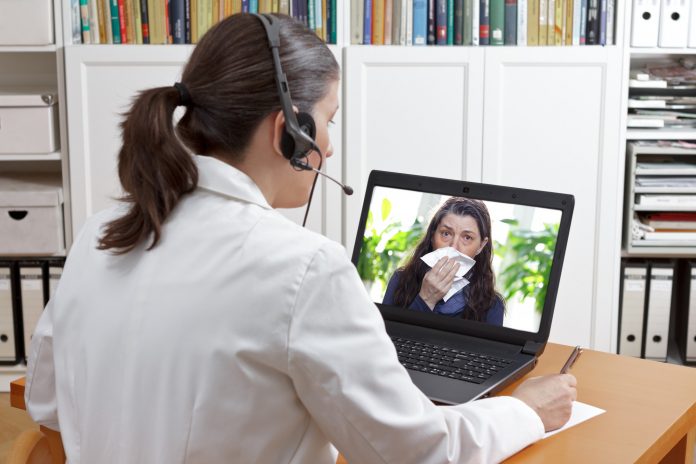The Government’s move to temporarily restore telehealth to peak Covid-19 pandemic settings was welcomed by The Royal Australian College of General Practitioners (RACGP) but it warns more long-term investment is needed.
Health Minister Greg Hunt and Regional Health Minister David Gillespie announced an additional $24 million for a range of measures to give GPs and other specialists more flexibility to support patients.
The announcement comes after RACGP President Dr Karen Price met with Minister Hunt and Minister Gillespie last week, along with other peak general practice and medical organisations, to discuss the challenges facing general practice and support needed to ensure GPs can stay open and deliver the essential care to Australians at this time.
The announcement outlined the following measures:
- An additional $24 million for temporary changes to telehealth to give GPs and other specialists more flexibility to support patients, including the continued supply of personal protective equipment (PPE) and online support.
- The introduction of temporary specialist inpatient telehealth MBS items (video and phone) and initial and complex specialist telephone consultation items, including longer telephone consultations for GPs (level C) until 30 June 2022. These services will be available nationally, rather than targeted at Commonwealth hotspots
- Expanding the MBS item for GPs caring for Covid positive patients in the community through face-to-face consultations to include patients that have tested positive through a rapid antigen test (RAT).
- Packages of personal protective equipment (PPE) to GPs, Aboriginal Community Controlled Health Services and GP Respiratory Clinics to support GPs providing face-to-face care. Over 20 million units of PPE will be provided for primary care over the next three months, including nine million p2/n95 masks for GPs.
- Healthdirect will develop a national assessment, triage and notification infrastructure to connect people who test positive with the care they need and advice, based on guidelines developed by the Royal Australian College of General Practitioners, (soon to be available in multiple community languages). This is expected to commence in Queensland on 17 January 2022 with other states to follow.
Dr Karen Price says that the announcement was a step in the right direction.
“It’s positive news that the Government is listening to the Royal Australian College of GPs on telehealth and need for more support to manage the increasing number of Covid-19 positive patients in the community,” she says.
“We have strongly advocated for Medicare rebates to remain for longer telephone consultations and for good reason. Telehealth use in Australia is largely phone-based. Between March 2020 and March 2021, video consultations comprised only 2.4% of telehealth services. Video consultations are not suitable for many patients including older people unaccustomed to the technology or those with unreliable internet access.
“Last year, when the federal Government removed Medicare support for phone consultations lasting longer than 20 minutes, we warned that this would disadvantage vulnerable patient groups.
“The stark reality is that many of the patients who benefit the most from telehealth are also the most disadvantaged when it comes to internet connectivity and reliability.
“Discouraging longer phone consultations is particularly disadvantageous for Aboriginal and Torres Strait Islander people seeking to undertake a health assessment, patients in rural and remote areas, older people, and those with multiple chronic conditions.
“So, we called on the Government to reinstate Medicare rebates for longer phone consultations as part of the permanent telehealth model.
“A six-month restoration of these rebates is welcome; however, we must not stop there – this must be a permanent fixture of telehealth for years to come and the RACGP will continue fighting to make that happen.
“Otherwise, we risk undoing a lot of hard work that has improved care for patients including those in rural and remote areas, Aboriginal and Torres Strait Islander patients and patients with chronic disease.”
Dr Price says that telehealth was needed by patients across Australia more than ever before.
“With Covid-19 cases escalating in many communities across Australia, particularly New South Wales and my home state of Victoria, telehealth is a great solution for people at greater risk of severe illness if they contract the virus including older people, those with serious underlying health conditions and the immunocompromised,” she says.










